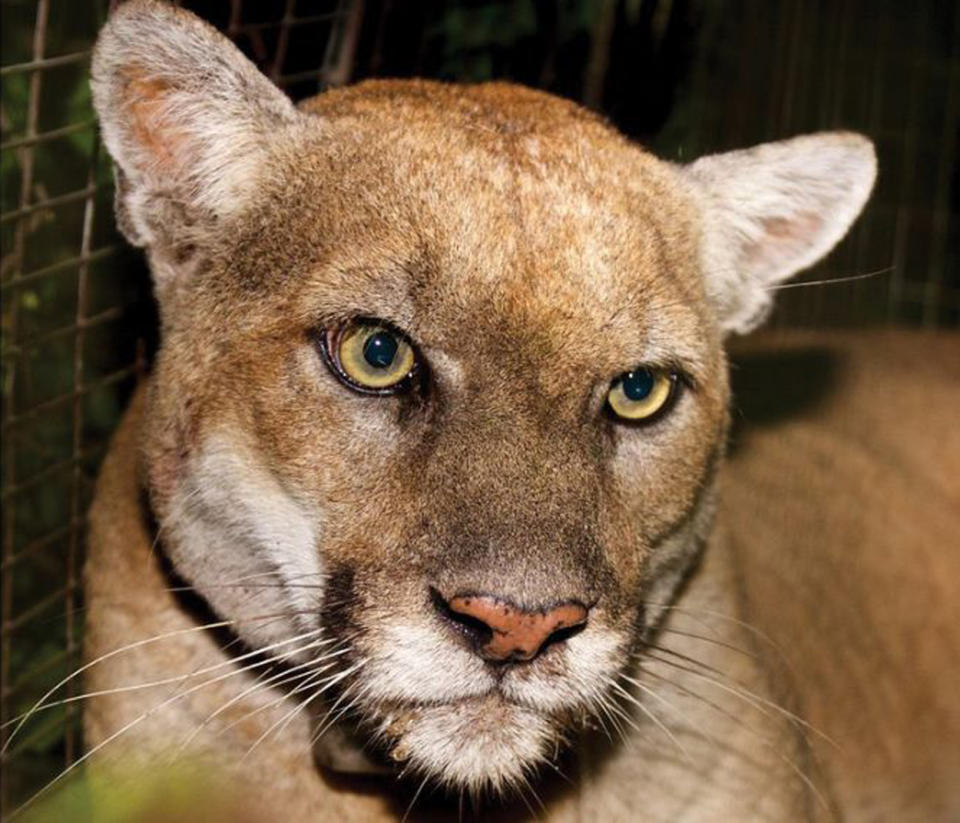Los Angeles’ famed mountain lion known as 'Hollywood Cat' 'compassionately euthanized'
The Los Angeles mountain lion known as P-22 —or the “Hollywood Cat” — was "compassionately euthanized" Saturday after a comprehensive medical evaluation showed the animal had "several severe injuries and chronic health problems," according to the California Department of Fish and Wildlife.
P-22 was captured Monday for a health checkup after signs of possible distress were observed, wildlife officials said.
The animal, who is believed to be around 12 years old, was believed to have killed a leashed pet last month. He was captured around 11:30 a.m. after getting sedated with tranquilizer darts in the nearby Los Feliz neighborhood, the state Department of Fish and Wildlife and the National Park Service said in a joint statement at the time.

P-22's extensive evaluation determined that there was significant trauma to his "head, right eye and internal organs, confirming the suspicion of recent injury, such as a vehicle strike." The exam also revealed pre-existing illnesses, such as "irreversible kidney disease, chronic weight loss, extensive parasitic skin infection over his entire body and localized arthritis."
In light of the animal's condition, the medical team at San Diego Zoo Safari Park and the CDFW unanimously recommended "compassionate euthanasia under general anesthesia," and made the decision to do so on Saturday.
"P-22’s advanced age, combined with chronic, debilitating, life-shortening conditions and the clear need for extensive long-term veterinary intervention left P-22 with no hope for a positive outcome," the CDFW said in a statement.
"Mountain lion P-22 has had an extraordinary life and captured the hearts of the people of Los Angeles and beyond. The most difficult, but compassionate choice was to respectfully minimize his suffering and stress by humanely ending his journey," the department wrote.
This article was originally published on NBCNews.com

